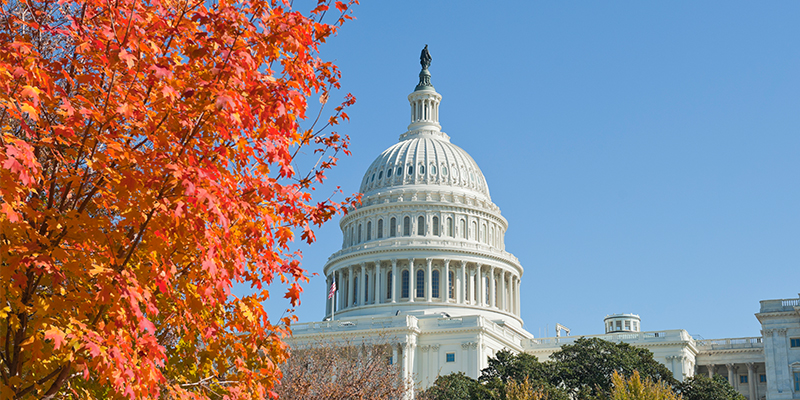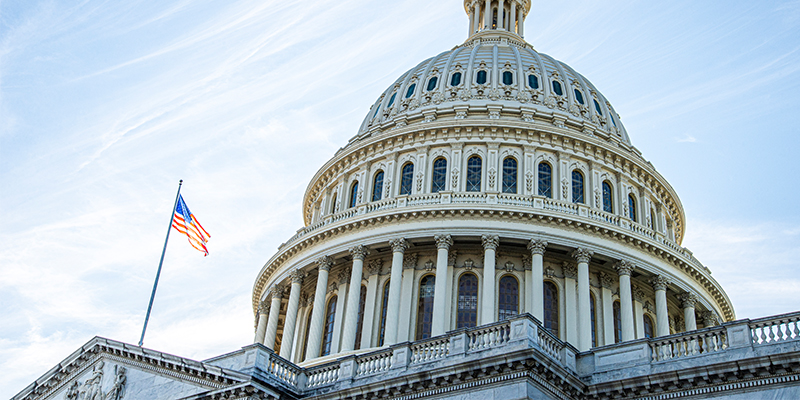Following three weeks of negotiations and squabbling, House Republicans elected Louisiana Representative Mike Johnson to serve as the 56th Speaker of the House. Unlike his predecessor, Kevin McCarthy (R-CA), who went 15 rounds before becoming speaker in January, Johnson was the first Republican to receive unanimous support from all Republicans voting, prevailing over House Minority Leader Hakeem Jeffries (D-NY) in a 220 to 209 vote.
This was a difficult time for House Republicans, who struggled to find a new speaker after eight of their members joined all House Democrats to abruptly oust McCarthy on Oct. 3. During the ensuing chaos, House Republicans nominated three candidates for speaker — Majority Leader Steve Scalise (LA), Judiciary Committee Chairman Jim Jordan (OH) and Republican Whip Tom Emmer (MN) — but all three failed to achieve the 217 votes needed to win the speaker’s gavel.
Johnson was first elected to Congress in 2016 after two years as a state representative. He represents the 4th Congressional District of Louisiana which includes 16 parishes (counties) in the northwest and western regions of the state. He is a 1995 graduate of Louisiana State University (LSU), earning a bachelor’s degree in business administration, and a 1998 graduate of LSU Law School. Johnson was born and raised in the Shreveport-Bossier area of Louisiana and still lives there today with his wife and children.
Since arriving in Washington, Johnson’s ascension has been swift. As a freshman member in 2017, he unified most of his classmates around a bipartisan pledge of civility, and in his second term he was elected chairman of the conservative Republican Study Committee, a job once held by Scalise and former Vice President Mike Pence. In his third term he was elected vice chairman of the House Republican Conference and reelected unanimously this past January. He also served on the House Judiciary Committee and the House Armed Services Committee.
A man of deep Christian faith, Johnson appears to be more of a throwback to the Ronald Reagan conservatives than the current Donald Trump populism, with many Republican members citing Johnson’s character and integrity as the unifying factors for his support in the conference. However, he did cast a vote objecting to the certification of the 2020 presidential election. With a four-seat majority, keeping his conference unified will be a major challenge in the months ahead.
With the speaker’s selection resolved, Congress will face several legislative challenges in the months ahead, the most immediate being the need to reach agreement on the 13 annual appropriations bills before the Nov. 17 deadline of the current continuing resolution. Johnson has signaled a willingness from his conference to approve a second continuing resolution through the middle of January should they not be able to meet the next deadline.
Other legislative challenges facing Congress include funding for Ukraine and Israel, reauthorization of the annual National Defense Authorization Act (NDAA), reauthorization for the agricultural legislation in the Farm Bill, and reauthorization of the Federal Aviation Administration (FAA). Congress also will need to repeat the appropriations process next year for the 2025 fiscal year. All of this will occur in a presidential election year in which all members of the House are up for re-election.
While the Congressional schedule looks hectic in the final months of 2023, the Congressional tax-writing committees are optimistic that a tax bill could be approved at the end of next year. NAIOP has a number of legislative priorities that we are pursuing on the tax front. Chief among these is passage of legislation providing tax credits to spur the conversion of vacant and underutilized commercial properties to affordable housing, which has been a top legislative priority. Language creating these tax credits could become part of a larger tax package. NAIOP is also working in support of H.R. 5580, the Saving Our Mainstreet American Locations for Leisure and Shopping Act, bipartisan legislation introduced by Congresswoman Claudia Tenney (R-NY) and Congressman Brian Higgins (D-NY), to protect real estate investors from facing increase tax liabilities when they receive debt forgiveness when refinancing properties.
Also in the tax discussions are several provisions important to commercial real estate from the Tax Cuts and Jobs Act of 2017 (TCJA), which expire at the end of 2025 and need to be renewed. Among these are:
- Section 163(j), which allows all taxpayers with business interest expenses to deduct business interest income up to 30% of the taxpayer’s adjusted taxable income (ATI);
- Section 199A, which allows individuals, trusts, and estates with pass-through business income to deduct up to 20% of their qualified business income (QBI) from their taxable ordinary income; and
- bonus depreciation, which has begun a phase-down of 20% annual decreases (in 2024, it will be at 60% of its original value).
And of course, we need to continue to be mindful of any attempts to restrict Section 1031 Like-Kind Exchanges or eliminate capital gains tax treatment for real estate carried interests. Needless to say, the remaining months of 2023 will be an active month for NAIOP advocacy.














